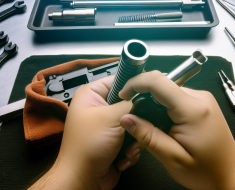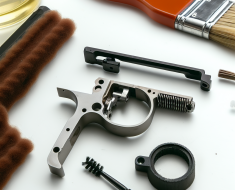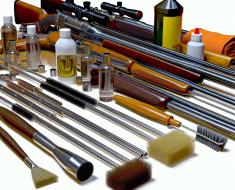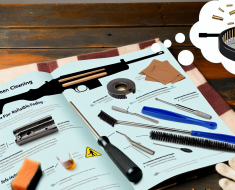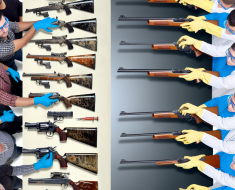The Impact of Neglecting Gun Maintenance
Proper gun maintenance is a critical aspect of responsible firearm ownership that is often overlooked. Whether for personal defense, sport shooting, hunting, or law enforcement use, the consistent upkeep of firearms ensures their reliability, safety, and longevity. Neglecting this essential task can lead to dangerous malfunctions, decreased accuracy, and potentially fatal accidents. This article explores the profound impact of neglecting gun maintenance by examining its effects on firearm performance, safety risks, legal implications, and economic consequences.
The Fundamentals of Gun Maintenance
Before delving into the consequences of neglect, it is important to understand what gun maintenance entails. Maintenance typically includes cleaning, lubrication, inspection for wear and damage, and proper storage. These tasks help prevent the buildup of residue from gunpowder combustion (carbon fouling), corrosion from moisture exposure, and mechanical wear from repeated use.
- Cleaning: Removing fouling and debris to maintain smooth operation.
- Lubrication: Applying oils to moving parts to reduce friction and wear.
- Inspection: Checking for cracks, rust, or worn components that could compromise function.
- Storage: Ensuring firearms are stored in dry, secure environments to prevent damage or unauthorized access.
Each of these steps contributes to the overall reliability and safety of a firearm. Skipping any can have serious repercussions.
Decreased Reliability and Performance Issues
One of the most immediate impacts of neglecting gun maintenance is a decline in firearm reliability. Residue buildup from firing causes parts such as the barrel, chamber, bolt carrier group, or trigger assembly to become sticky or jammed. In practical terms, this can manifest as misfires, failure-to-feed (FTF), failure-to-eject (FTE), or stovepipe jams—issues that can be life-threatening in self-defense scenarios.
A study conducted by the U.S. Army Marksmanship Unit found that firearms with regular cleaning cycles exhibited significantly fewer malfunctions during high-round-count tests compared to those left unmaintained. For example:
- A rifle fired over 1,000 rounds without cleaning experienced a 75% increase in stoppages compared to rifles cleaned every 500 rounds.
- Pistols showed similar trends with increased failure rates after just a few hundred rounds without maintenance.
The degradation in accuracy is another concern. Carbon fouling inside barrels affects bullet trajectory by altering rifling integrity and barrel harmonics. Hunters or competitive shooters who neglect cleaning may notice an increase in shot dispersion or unpredictable bullet impact points over time.
Safety Risks Associated with Neglected Firearms
The most serious consequence of poor gun maintenance lies in compromised safety. Firearms are complex mechanical devices designed to operate under controlled conditions; when dirt, rust, or worn parts interfere with these mechanisms, accidental discharges or catastrophic failures can occur.
- Accidental Discharges: Faulty trigger assemblies or worn sear components can cause unintended firing when a firearm is jostled or dropped.
- Barrel Obstructions: Carbon buildup combined with foreign objects can cause pressure spikes leading to barrel bulges or explosions upon firing.
- Misfires & Hangfires: Dirty firing pins may not strike primers properly causing delayed ignition which is hazardous if shooters prematurely open the action.
A tragic example illustrating these risks occurred in 2016 when an improperly maintained revolver experienced a catastrophic failure due to corrosion inside the cylinder chambers. The owner suffered severe injuries from metal fragments expelled during discharge. Such incidents highlight why routine inspections are vital for detecting early signs of wear or corrosion before they escalate into dangerous failures.
Legal and Liability Implications
The repercussions of neglecting gun maintenance extend beyond physical harm; legal consequences may arise if negligence results in injury or death. Gun owners have a duty of care to ensure their firearms are safe for use—not only for themselves but also for others who might handle their weapons.
- Civil Liability: If an improperly maintained firearm causes injury during lawful use (e.g., hunting accidents), owners may be held liable for damages due to negligence.
- Criminal Negligence: In some jurisdictions, gross negligence leading to accidental discharge or injury could result in criminal charges against the owner.
- Insurance Issues: Some insurance policies covering firearms may deny claims if evidence shows lack of proper maintenance contributed to an accident.
A notable court case from 2018 involved a homeowner whose pistol malfunctioned due to rust-related sear failure causing an unintended discharge injuring a guest. The court ruled against the homeowner citing negligence for failing to maintain the weapon properly—a costly legal lesson underscoring responsibility beyond simple ownership.
The Economic Costs of Neglecting Firearm Care
The financial implications of ignoring gun maintenance are significant yet often underestimated by owners. Firearms that suffer from corrosion or mechanical damage require professional repair which can be expensive depending on severity. In extreme cases where structural integrity is compromised—such as cracked barrels or damaged receivers—the firearm may become irreparable and need replacement altogether.
- Repair Costs: Small part replacements like springs or pins typically range between $20-$100



